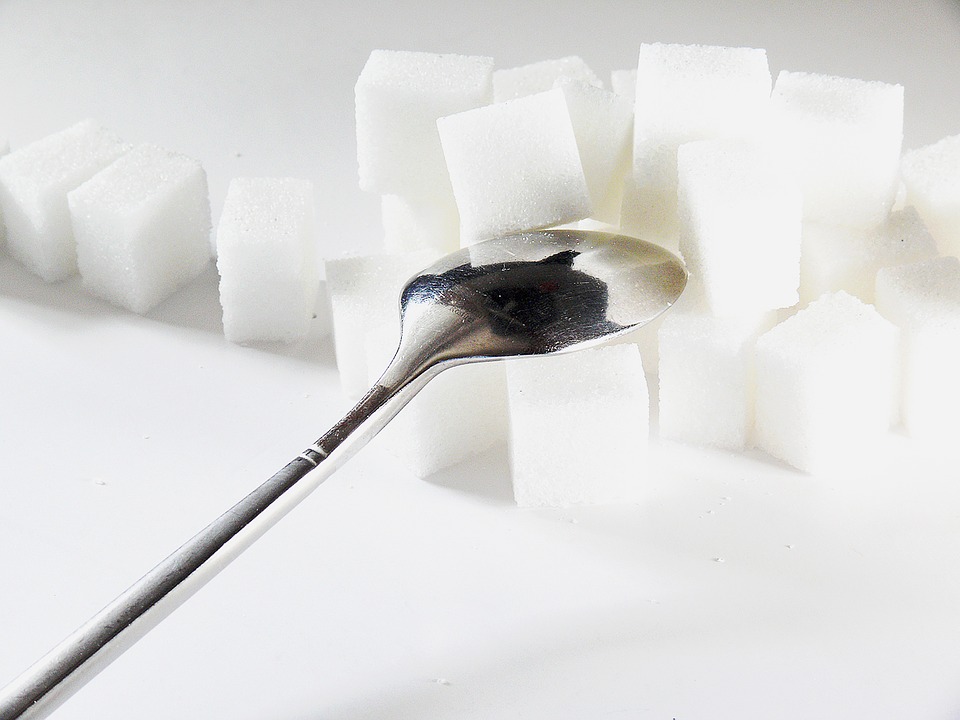
Harmful Effects of Excess Sugar in the Body
Taking in some quantity of sugar each day is necessary to build energy. For many Americans, this is easy, as the typical American meal tends to be high on sugar. You must know, though, that there are some less than desirous effects of eating sugar when you do so long term. Excess sugar in the body can give rise to severe health complications. Some of these could include diabetes, tooth decay, obesity, and other mild to chronic illnesses.

Foods high in sugar also increase the number of calories ingested per meal significantly. To cut calories through controlling sugar consumption, you need to limit the incidence of high-sugar foods in your diet. Your body experiences the following as a result of excess sugar through eating:
- Excess sugar can weaken your immune system: The immune system protects our bodies from harmful infections. This immune system can, however, be affected by frequent intake of food with high sugar content, as these limit the ability of the immune system to function effectively. To keep your immune system on top of its game, reduce an overload of high-sugar foods by fixing less sugary meals into your meal plan.
- High consumption of sugary food leads to faster aging: A high sugar diet contributes to your skin growth. The sugar mixes with protein in your bloodstream to form advanced glycation end products(AGEs). A high consumption rate of sugary foods thus increases the accumulation of AGEs. This process will give rise to skin damage by causing your skin to shrink. This action will make your physical appearance look older than your real age.
- Excess sugar gives rise to tooth decay: It’s normal to prefer to eat sugary foods because of the sweet taste. Still, there is a need to adjust the frequency and quantity of foods like candy and sweets. Among other health fallouts, your teeth can experience decay over time through this. Leftover sugar particles in your teeth attract harmful bacteria that prompt and accelerate tooth decay. To avoid this dental erosion over time, one needs to cut down on the rate of sugar per day.
- Sugar contributes to stress: Generally, stress occurs when we subject our bodies to strain through mental or physical tasks and engagements. Excess sugar in your diet can limit your abilities to handle such stress whenever they occur. The stress hormones, also called cortisol, manage our blood sugar level. Hence, an increase in sugar eating habits will crash the stress hormones with protein in your blood sugar. As a result of this, your body will experience an increment of blood pressure, irritability, and a faster heartbeat. A no sugar diet, done the right way, can lessen the probability of this occurring.
- Sugar contributes to depression and anxiety: Frequent absorption of sugar into your bloodstream can increase feelings of depression and anxiety. When sugar in the blood increases, your body compensates with an increase of insulin to normalize levels. This “sugar rush” is great until your body’s remedial action plunges you down again. This oscillation or highs followed by lows give rise to mood swings, fatigue, unexplained anxiety, and discomfort. Sugar can also lead to an imbalance in certain brain chemicals, causing depression. A study in 2017 revealed that adult males who consumed more than 67 grams of sugar per day were more likely to experience clinical depression five years later.
- Sugar causes obesity: People with a constant high sugar diet stand the risk of excessive weight gain, which can lead to obesity. When your body takes in excess sugar, it results in a similar increment in the number of calories, leading to weight gain. This sugar normally takes the form of glucose in the body, which supplies energy. The body usually extracts the glucose needed for energy and then stores the rest as fat in muscles, liver, and other parts of the body. Obesity is a condition that may likely develop due to this excess fat in the body.
- Sugar increases the likelihood of heart infections and other diseases: A high-sugar eating habit increases the chances of diseases such as diabetes, cardiovascular illnesses, liver issues, and weight-related conditions like obesity. Lately, there have been studies that try to link some cancers with excess sugar. The results are not yet definitive at this point, however.
How Excess Sugar Can Affect the General Well-Being of Pregnant Women

During pregnancy, women usually experience an increased appetite for food. Many times, the preference will be for food with high sugar content. Overindulging in this can be harmful to both the mother and the fetus. A study carried out by American Journal Preventive Medicine describes the health complications involved while eating sugar during pregnancy. The study specifies that sugar can affect the memory of the unborn child. Pregnant women should consume sugar in a healthy diet using this guide:
- Avoid sugary drinks and snacks: Many pregnant women people prefer to energize their bodies in between meals with sugary drinks and snacks. Every pregnant woman should skip this eating habit because it will increase their blood sugar level.
- Increase your fruit-eating habit: Fruits are rich in nutrients and make tasty snacks too. Eating more fruits during pregnancy will add necessary nutrients to your body, and this will improve your baby’s health.
- Do eat some sugary foods: Despite the effects of sugar on your health during pregnancy, your body still needs glucose for energy. Hence, always include some sugary foods in a well-balanced meal plan. Small quantities are the way to go.
- Design a pregnancy diet: Repurpose your meal plan to suit your current situation. Make sure that it contains all the foods and nutrients you require at the moment. Maintaining a healthy pregnancy diet will help your quest for a healthy baby.
Best Alternative Foods to Sugar
To reduce sugar and maintain a healthy life, you need to seek for other food options with low or zero sugar content in them. There are a lot of foods with artificial or natural sweetness in them. Such types of foods can stand as alternatives to sugary foods. Some of the low sugar options include:
- Honey: Honey is a great alternative food to sugar because it contains less fructose and has a lower glycemic index than sugar. It is naturally sweeter than sugar. Honey consumption is usually minimal due to its natural sweetness.
- Monk fruits: These types of fruits are good alternatives to sugar since they do not contribute to high blood sugar in the body, and they have zero calories.
WHO recommends five percent of calories per day through sugar-high foods, or 25 grams of sugar per day, equal to something like six teaspoons. Considering that Americans max out at about 100 -120 grams per day, the need for caution has never been greater. You should know that eating sugar can make you hungrier, causing a vicious cycle of ingesting excess sugar. Staying with the pointers above should see you well on the way to a healthy, low-sugar eating habit.



